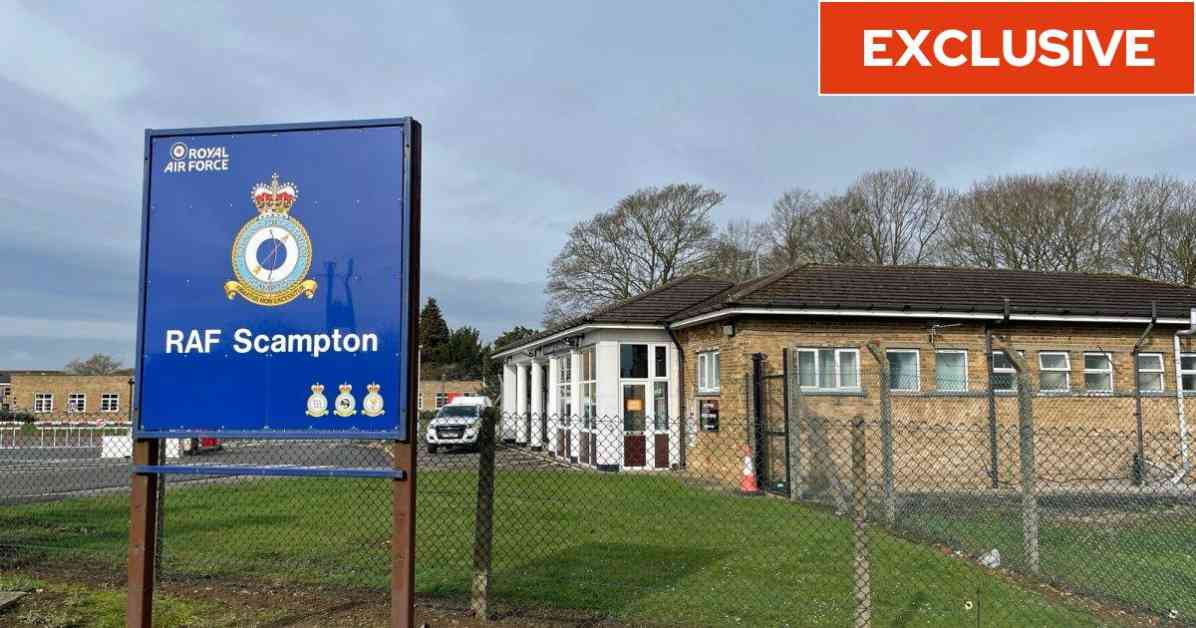The Home Office’s costly legal battle over the use of RAF Wethersfield as asylum seeker accommodation has come under scrutiny as the department has spent over £350,000 defending its position in court. The legal challenge, brought by four asylum seekers who were housed at the site, raised concerns about the living conditions and treatment of residents. The ongoing case has shed light on the controversial decision to convert the former military base into an asylum accommodation site, sparking protests, allegations of poor conditions, and calls for closure.
The Costly Legal Battle
The legal challenge against the Home Office’s use of RAF Wethersfield as asylum accommodation has highlighted the high costs associated with defending the decision. The department has spent a staggering £352,229 on legal fees related to the case, with the final verdict still pending. The asylum seekers involved in the case raised concerns about the conditions at the site, including allegations of inadequate living standards, discriminatory practices, and a lack of proper screening for vulnerability before transferring residents to the facility. The ongoing legal proceedings have drawn attention to the controversial nature of using military bases as asylum accommodation sites.
Refugee organizations have criticized the Home Office’s handling of the situation, labeling the costs incurred by the legal battle as “indefensible.” They have called for the closure of RAF Wethersfield, citing concerns about the well-being of asylum seekers housed at the site. The case has brought to light the challenges faced by asylum seekers in the UK and the need for more humane and appropriate accommodation solutions.
Controversies at RAF Wethersfield
Since its conversion into an asylum accommodation site in July 2023, RAF Wethersfield has been plagued by controversies and issues. Asylum seekers living at the site have staged hunger strikes, protests, and alleged poor living conditions, including a scabies outbreak. Reports of suicide attempts, fights, and medical emergencies at the facility have raised concerns about the well-being of residents.
Footage shared with Channel 4 revealed the desperate situation at RAF Wethersfield, with one man threatening to jump off the roof. The frequency of ambulance calls to the site and reports of nightly fights indicate a volatile and unsafe environment for asylum seekers. An official government report warned of potential health risks at the site due to its previous military use, further highlighting the unsuitability of RAF Wethersfield as asylum accommodation.
The isolation and remoteness of the site have also been criticized, with asylum seekers feeling cut off from the outside world. Limited transportation options and the site’s location, surrounded by barbed wire and miles away from the nearest village, have contributed to the sense of isolation experienced by residents. The high costs of running the site, far exceeding initial estimates, have raised questions about the government’s decision to convert military bases into asylum accommodation facilities.
Government Response and Criticisms
The government’s handling of RAF Wethersfield and the legal challenges it faces have drawn criticism from various quarters. Opposition parties, including Labour and some Conservative MPs, have raised concerns about the suitability of the site for asylum accommodation. Former Home Secretaries and current Home Office officials have voiced opposition to the use of RAF Wethersfield, citing local impact, costs, and appropriateness as key issues.
Charities and refugee organizations have condemned the government’s spending on defending the site, calling for its closure and a more humane approach to housing asylum seekers. The human cost of the situation, including mental health concerns and suicide attempts, has been highlighted as a pressing issue that needs to be addressed. Calls for a more compassionate and effective asylum system have grown louder in the face of ongoing challenges and controversies at RAF Wethersfield.
In conclusion, the legal battle over the use of RAF Wethersfield as asylum accommodation has brought to light the challenges faced by asylum seekers in the UK and the need for more humane and appropriate housing solutions. The high costs associated with defending the decision to convert military bases into accommodation facilities have raised questions about the government’s priorities and policies regarding asylum seekers. As the case continues to unfold, it remains to be seen how the authorities will address the concerns raised by residents, charities, and legal challenges.













